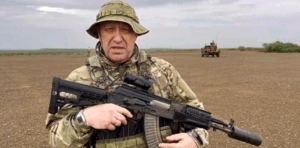Africa is grappling with the aftermath of the mysterious death of Yevgeny Prigozhin, the head of the Russian private military company Wagner Group. Prigozhin, once a close ally of Russian President Vladimir Putin, met his demise in a plane crash on March 23, 2023. The news sent shockwaves across the continent, as the Wagner Group had been a significant force-for-hire in Africa, expanding Russia’s influence and involving itself in various countries’ affairs.

The Wagner Group, with its several thousand-strong private military force, had become a powerful tool for the Kremlin to advance its foreign policy interests in Africa. Since 2014, the group had been operating in Syria and several African countries, providing military support, security services, and propaganda efforts. Prigozhin’s death has raised concerns about the future of the Wagner Group’s activities in Africa.
Prigozhin’s demise comes in the wake of a failed mutiny launched by the Wagner Group in Russia itself. The rebellion, which aimed to challenge President Putin’s leadership, was swiftly quelled, leading to a deal brokered by Belarusian President Alexander Lukashenko. Prigozhin, who had overestimated his importance, found himself on the brink of seizing Moscow but was ultimately forced to apologize and relocate the Wagner Group to Belarus.
The impact of Prigozhin’s death is most keenly felt in Africa, where the Wagner Group had been involved in various countries, providing military and security support while expanding Russia’s presence. The group’s activities have often been linked to coup plots, extraction of precious minerals, and exacerbating internal security challenges. With Prigozhin’s banishment to Africa after losing the Ukraine account, it is unlikely that the Wagner Group will fade away. Instead, it is expected to continue causing disruptions and posing challenges to stability in the region.
In Mali, the Central African Republic, Libya, and Sudan, Wagner mercenaries have been operating, replacing or supplementing UN and French forces in the fight against Islamist insurgents and protecting vulnerable regimes. The group has been involved in training local troops, guarding mineral resources, and suppressing dissent in exchange for various benefits, such as logging rights and control of lucrative mines.
The death of Prigozhin has left a void in Africa’s political landscape, raising concerns about the region’s stability. The absence of a central figure like Prigozhin has created a power vacuum, leading to political turmoil and economic uncertainty. African nations are now grappling with the consequences of his demise, as rival factions and armed groups vie for control, exacerbating ethnic tensions and sectarian violence.